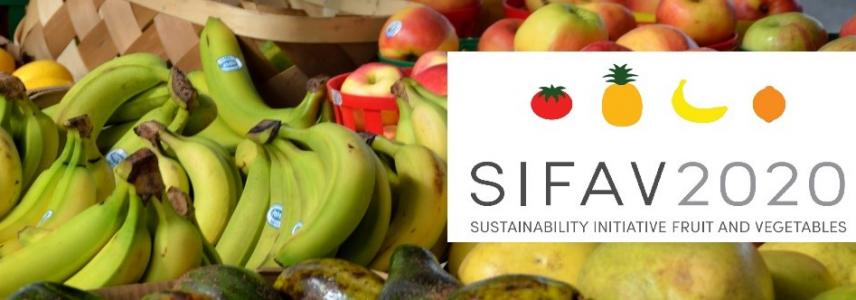New goals for Sustainability Initiative Fruit & Vegetables

Sustainability in the fresh fruit and vegetable sector is still an important goal in Europe, even during the COVID-19 pandemic. Environmental and social responsibility is no longer a choice; it is a requirement. One of the largest private initiatives is the Sustainability Initiative Fruit & Vegetables (SIFAV). IDH, the Sustainable Trade Initiative, hosts SIFAV. SIFAV is currently deciding on new goals for the future. But what impact will this have on fresh fruit and vegetable suppliers?
SIFAV’s main goal until 2020 was making imported fruit and vegetables 100% sustainable. SIFAV participants agreed to require overseas suppliers to meet at least 1 environmental and 1 social standard. Almost 50 businesses take part in SIFAV. These are mostly European importers and large food retailers. They have made great progress towards the programme’s 2020 goal.
Participants responsible for a large share of trade
The current participants are responsible for 20% to 25% of the European overseas import in fresh fruit and vegetables. SIFAV aims to create an even broader support base for its new goals for 2021-2025. It welcomes new participants: traders from across the globe and European supermarket chains.
SIFAV 2025 goals
The general SIFAV 2025 goals include:
- Implementing structural due diligence throughout the supply chain. Risk assessment based on the Organisation for Economic Co-operation and Development (OECD) and United Nations (UN) guidelines;
- Improving working conditions & living wages. Among other things, SIFAV will put a renewed ‘Basket of Standards’ in place. It will cover several southern and eastern European supply countries.
- Measuring and reducing the environmental footprint of priority products. The first focus will be on climate change, water and food loss.
Measuring environmental impact
Measuring and reducing environmental impact may be a challenge. A lot of data is needed. And participants and their suppliers will have new responsibilities. Environmental Standards can help to make progress in protecting the environment. For example, GlobalG.A.P. has developed a farm-level add-on for sustainable irrigation and groundwater use. More and more often, standards will be required to support data collection and impact measurement.
Suppliers to the European market
Companies in supplying countries should regularly check for new sustainability requirements. As a supplier to the European market, you should start documenting your social and environmental conduct. Worker salaries and information on environmental impact may become information you must share. Ambitious suppliers can join SIFAV and take part in determining future goals.
This news article was written for CBI by ICI Business.
Stay informed
To stay informed on the latest developments in the fresh fruit and vegetable sector, subscribe to our newsletter.